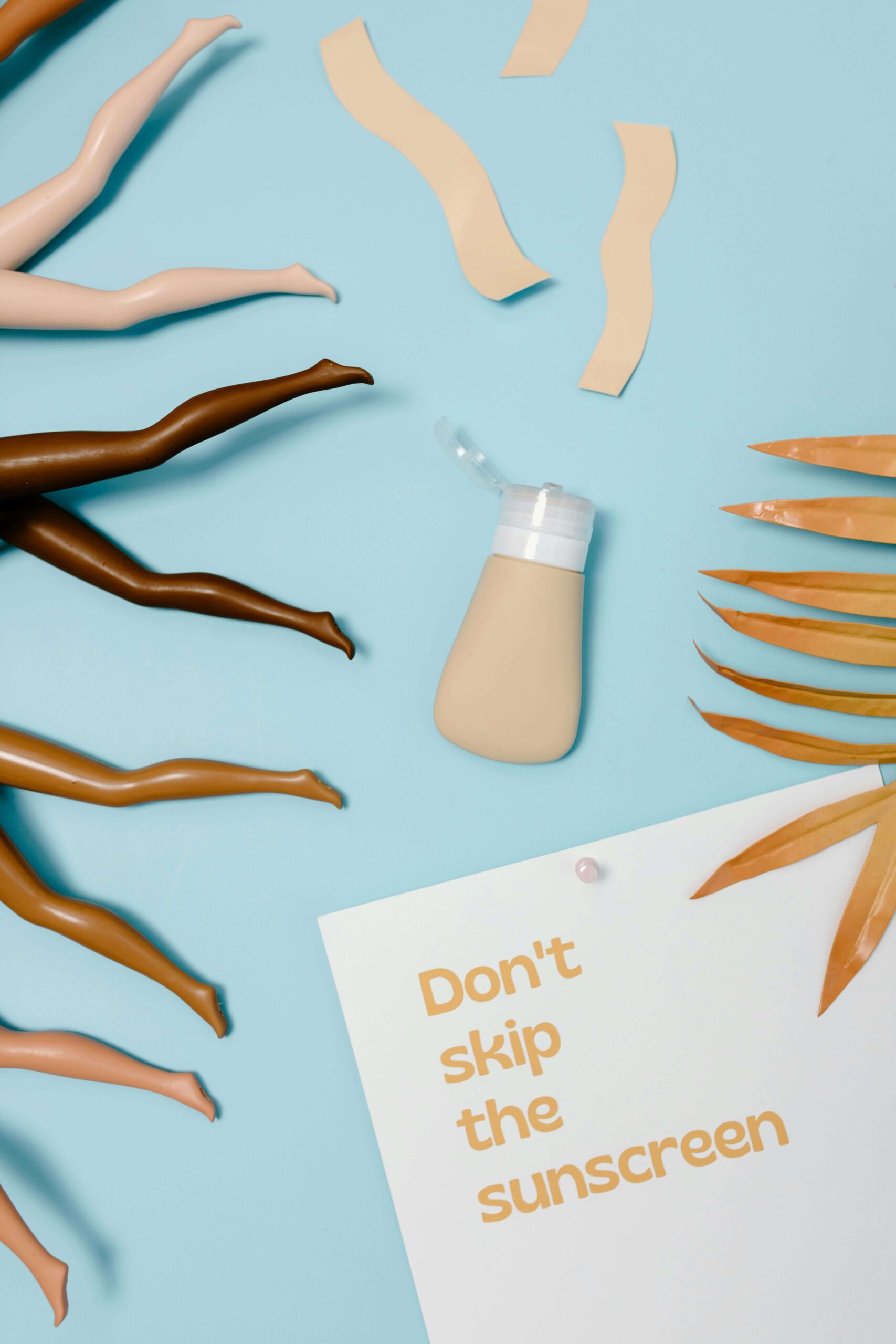Choosing the right SPF sunscreen can be daunting with so many options available in the market. We understand the importance of protecting your skin from the harmful effects of UV rays. In this guide, we’ll help you navigate through the different types of SPF sunscreens to find the one that suits your needs.
SPF
SPF stands for Sun Protection Factor, which measures a sunscreen’s ability to protect your skin from UVB rays, the type of radiation that causes sunburn and skin cancer. The higher the SPF number, the greater the protection. For daily use, a minimum of SPF 30 is recommended by dermatologists.
Types of SPF Sunscreens
- Chemical sunscreens: These sunscreens absorb UV rays and convert them into heat, which is then released from the skin. They are lightweight and suitable for everyday use.
- Physical Sunscreens: Also known as mineral sunscreens, these products contain active mineral ingredients like zinc oxide or titanium dioxide, which sit on the surface of the skin and reflect UV rays away.
- Water-Resistant Sunscreens: These sunscreens provide protection even after exposure to water, making them ideal for outdoor activities or swimming.
- Sensitive Skin Formulas: For those with sensitive skin, it’s important to choose a sunscreen that is hypoallergenic and fragrance-free to avoid irritation.
How to Choose the Best SPF Sunscreen
- SPF Level: Opt for SPF 30 or higher for daily use and SPF 50+ for extended sun exposure.
- Broad-Spectrum Protection: Look for sunscreens that protect against both UVA and UVB rays.
- Water Resistance: If you’re sweating or swimming, choose a water-resistant formula.
- Skin Type: Consider your skin type and any specific needs, such as sensitivity or acne-prone skin.
Application Tips
- Apply sunscreen generously 15–30 minutes before sun exposure.
- Reapply every two hours, or immediately after swimming, sweating, or towel drying.
- Don’t forget to apply sunscreen to often overlooked areas like ears, lips, and the tops of feet.
Our Top Picks
- Neutrogena Ultra Sheer Dry-Touch Sunscreen: A lightweight, non-greasy formula that offers broad-spectrum protection and is suitable for all skin types.
- EltaMD UV Clear Facial Sunscreen: Formulated for sensitive skin, this sunscreen contains niacinamide to calm and protect the skin.
- La Roche-Posay Anthelios Melt-in Milk Sunscreen: Water-resistant and suitable for sensitive skin, this sunscreen provides broad-spectrum protection without clogging pores.
The Hidden Danger in Sunscreen: Can It Lead to Cancer?

Introduction
Sunscreen, a common product used by many to shield themselves from harmful ultraviolet radiation, is now under the microscope for containing harmful substances. Certain types of sunscreen have been found to contain benzene, a well-known human carcinogen. This startling revelation raises concerns about the safety of sunscreen, as it could paradoxically increase the risk of cancer.
Benzene in Sunscreen: A Hidden Threat
Benzene is a chemical commonly found in industrial products such as gasoline and paint thinners. It has been found in dozens of sunscreen products, leading to demands for product recalls. Studies indicate that even low-level, consistent exposure to benzene can lead to blood tissue cancers, including leukemia, myeloma, and lymphoma.
FAQs About Benzene in Sunscreen
What is Benzene?
Benzene is an industrial chemical that has been found in several sunscreen and after-sun care products. Both the International Agency for Research on Cancer (IARC) and the Environmental Protection Agency (EPA) classify benzene as “carcinogenic to humans.”
Does sunscreen cause cancer?
Sunscreen containing benzene can potentially cause cancer. Though no specific studies have been done on benzene sunscreens and cancer, the chemical’s presence in popular sunscreen brands has been confirmed.
Which sunscreen brands contain benzene?
According to Valisure’s research, many popular brands, including Neutrogena, Sun Bum, and CVS Health, contain benzene. They detected benzene in 78 different product batches, with some products showing levels over 2 ppm.
Is Neutrogena sunscreen carcinogenic?
Several types of Neutrogena sunscreen were found to contain benzene. Johnson & Johnson, the parent company of Neutrogena, issued a voluntary recall of some products in response to Valisure’s findings.
Which sunscreen is best for dry skin?
For dry skin, it’s important to choose a sunscreen that not only provides sun protection but also helps to hydrate and nourish the skin.
Which SPF sunscreen is best?
When choosing a sunscreen, consider your skin type, any specific skin concerns, and how you’ll be using it (e.g., daily use, sports, or outdoor activities). Look for a broad-spectrum sunscreen with an SPF of at least 30,
Can sunscreen cause cancer?
Sunscreen is designed to protect the skin from the harmful effects of UV radiation, which is a known risk factor for skin cancer.
Does sunscreen block vitamin D?
Sunscreen affects vitamin D production depending on several factors, including the SPF of the sunscreen, the amount applied, and the individual’s skin type and sun exposure.
What is a broad-spectrum sunscreen?
Broad-spectrum sunscreen is a type of sunscreen that is designed to protect the skin from both UVA and UVB rays.
Conclusion
Sunscreen is supposed to protect us from skin cancer, not cause it. The discovery of benzene in several popular sunscreen brands is alarming. It is essential to be aware of the ingredients in the products we use daily and to be proactive in protecting our health.

